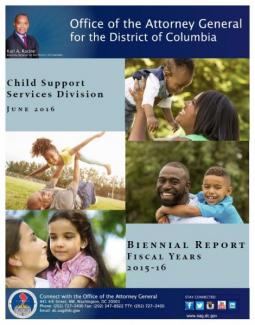Antitrust Violations in DC
The Office of the Attorney General (OAG) enforces the District of Columbia’s antitrust laws to protect consumers and businesses from anticompetitive behavior and ensure commerce in the District is conducted in a fair manner.
Though anticompetitive behavior can take many forms, two of the most common seen in the District are price fixing and bid-rigging, instances in which competitors agree to set prices for goods or services. When this occurs, competitors can charge more than they would if they competed against one another, and higher prices can be passed down to consumers. For more information on price fixing and bid-rigging, please scroll down.
Other potentially anticompetitive practices that raise competition concerns include:
- exclusive dealing—when a dominant seller requires that a buyer not do business with other suppliers;
- tying and bundling—when a dominant seller requires a buyer to purchase a product they may not want in order to obtain other products they need, or otherwise sells products together in a way that limits competition in one of the products;
- mergers, acquisitions, and related combinations—when competing companies or potentially competing companies combine, or even form a joint venture, that reduces their incentives to compete against each other.
OAG also protects workers’ rights to be free of anticompetitive non-compete agreements, which limit workers’ ability to work for their employer’s competitor, and “no poach” agreements between employers not to recruit or employ each other’s employees.
OAG routinely investigates and brings court actions to stop these and other types of anticompetitive conduct. However, because these practices are often agreed to behind closed doors, or buried in contracts, the first line of defense against them are DC residents and businesses who are harmed by such practices.
To report a potential violation of state or federal antitrust law in the District of Columbia, please complete this form.
Questions can be emailed to: antitrust@dc.gov
Noncompetes are Now illegal For Many District Workers
Antitrust and Other Laws Relating to Competition
Price Fixing or Bid Rigging Determination
Price-fixing, bid-rigging and similar conspiracies usually occur where there are relatively few sellers who have to agree. The larger the group of sellers, the more difficult it usually is to come to an agreement and enforce it.
Because they are secret by nature, conspiracies are difficult to detect and prove. If you suspect any anticompetitive behavior by competitors in pricing or bidding, keep an eye out for the following telltale signs:
- any evidence that two or more competing sellers of similar products have agreed to price their products a certain way, to sell only a certain amount of their product or to sell only in certain areas or to certain customers;
- large price changes involving more than one seller of very similar products of different brands, particularly if the price changes are of an equal amount and occur at about the same time;
- suspicious statements from a seller suggesting that only one firm can sell to a particular customer or type of customer;
- fewer competitors than normal submit bids on a project;
- identical bids submitted by competitors;
- the same company repeatedly has been the low bidder on contracts for a certain product or service or in a particular area, or bidders seem to win bids on a fixed rotation;
- an unusual and unexplainable large dollar difference between the winning bid and all other bids; or
- the same bidder bids substantially higher on some bids than on others, and there is no logical cost reason to explain the difference.
These signs are by no means conclusive evidence of price fixing or bid rigging. More investigation by trained lawyers and investigators would be required to determine that. But they may be an indication of collusion, and the people who enforce the competition laws want to hear about them.
Bid-Rigging Is Illegal

